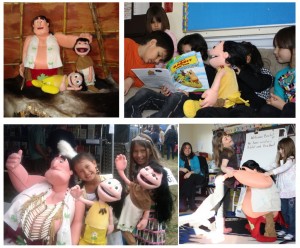I came across this website titled Native Stories for Public Broadcasting. It is a website created and produced by North American Natives who broadcast stories, podcasts, films, TV and news based on tribal stories, history, or current events. These stories are meant to represent Native culture and values with Native communities and with the world.
The board members of this website is made up of Native North Americans from different tribes who are representing the voices of Native North Americans in a global media world. The aim to the website is to share, collaborate, encourage creativity and bring honour to Native cultures
I decided to go to the films category of the website. I watched some of the previews and read some summaries of the films listed. The films ranged from documentaries, personal experiences of elders during war time, stories told through film, films based on athletics, music and even comedies. There was a large range of types of films about Native culture told through a Native perspective.
I think this website is very empowering because it is way for Native North Americans to broadcast their own heritage and culture through media. It is a way for tribes to accurately portray their identities anNatid values rather than allowing Western media to continue to romanticize Native North Americans from an ethnocentric view.

